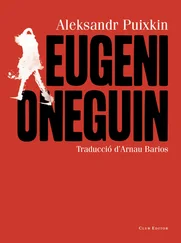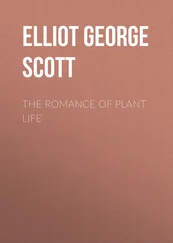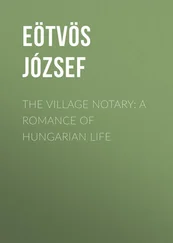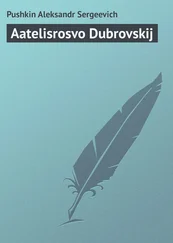Aleksandr Pushkin - Eugene Oneguine [Onegin]. A Romance of Russian Life in Verse
Здесь есть возможность читать онлайн «Aleksandr Pushkin - Eugene Oneguine [Onegin]. A Romance of Russian Life in Verse» весь текст электронной книги совершенно бесплатно (целиком полную версию без сокращений). В некоторых случаях можно слушать аудио, скачать через торрент в формате fb2 и присутствует краткое содержание. Год выпуска: 2007, Жанр: Поэзия, на английском языке. Описание произведения, (предисловие) а так же отзывы посетителей доступны на портале библиотеки ЛибКат.
- Название:Eugene Oneguine [Onegin]. A Romance of Russian Life in Verse
- Автор:
- Жанр:
- Год:2007
- ISBN:нет данных
- Рейтинг книги:4 / 5. Голосов: 1
-
Избранное:Добавить в избранное
- Отзывы:
-
Ваша оценка:
- 80
- 1
- 2
- 3
- 4
- 5
Eugene Oneguine [Onegin]. A Romance of Russian Life in Verse: краткое содержание, описание и аннотация
Предлагаем к чтению аннотацию, описание, краткое содержание или предисловие (зависит от того, что написал сам автор книги «Eugene Oneguine [Onegin]. A Romance of Russian Life in Verse»). Если вы не нашли необходимую информацию о книге — напишите в комментариях, мы постараемся отыскать её.
Eugene Oneguine [Onegin]. A Romance of Russian Life in Verse — читать онлайн бесплатно полную книгу (весь текст) целиком
Ниже представлен текст книги, разбитый по страницам. Система сохранения места последней прочитанной страницы, позволяет с удобством читать онлайн бесплатно книгу «Eugene Oneguine [Onegin]. A Romance of Russian Life in Verse», без необходимости каждый раз заново искать на чём Вы остановились. Поставьте закладку, и сможете в любой момент перейти на страницу, на которой закончили чтение.
Интервал:
Закладка:
XLVI
In groups, official striplings glance
Conceitedly on Tania fair,
And views amongst themselves advance
Unfavourable unto her.
But one buffoon unhappy deemed
Her the ideal which he dreamed,
And leaning 'gainst the portal closed
To her an elegy composed.
Also one Viazemski, remarking
Tattiana by a poor aunt's side,
Successfully to please her tried,
And an old gent the poet marking
By Tania, smoothing his peruke,
To ask her name the trouble took. [79] One of the obscure satirical allusions contained in this poem. Doubtless the joke was perfectly intelligible to the habitues of contemporary St. Petersburg society. Viazemski of course is the poet and prince, Pushkin's friend.
XLVII
But where Melpomene doth rave
With lengthened howl and accent loud,
And her bespangled robe doth wave
Before a cold indifferent crowd,
And where Thalia softly dreams
And heedless of approval seems,
Terpsichore alone among
Her sisterhood delights the young
(So 'twas with us in former years,
In your young days and also mine),
Never upon my heroine
The jealous dame her lorgnette veers,
The connoisseur his glances throws
From boxes or from stalls in rows.
XLVIII
To the assembly her they bear.
There the confusion, pressure, heat,
The crash of music, candles' glare
And rapid whirl of many feet,
The ladies' dresses airy, light,
The motley moving mass and bright,
Young ladies in a vasty curve,
To strike imagination serve.
'Tis there that arrant fops display
Their insolence and waistcoats white
And glasses unemployed all night;
Thither hussars on leave will stray
To clank the spur, delight the fair—
And vanish like a bird in air.
XLIX
Full many a lovely star hath night
And Moscow many a beauty fair:
Yet clearer shines than every light
The moon in the blue atmosphere.
And she to whom my lyre would fain,
Yet dares not, dedicate its strain,
Shines in the female firmament
Like a full moon magnificent.
Lo! with what pride celestial
Her feet the earth beneath her press!
Her heart how full of gentleness,
Her glance how wild yet genial!
Enough, enough, conclude thy lay—
For folly's dues thou hadst to pay.
L
Noise, laughter, bowing, hurrying mixt,
Gallop, mazurka, waltzing—see!
A pillar by, two aunts betwixt,
Tania, observed by nobody,
Looks upon all with absent gaze
And hates the world's discordant ways.
'Tis noisome to her there: in thought
Again her rural life she sought,
The hamlet, the poor villagers,
The little solitary nook
Where shining runs the tiny brook,
Her garden, and those books of hers,
And the lime alley's twilight dim
Where the first time she met with him .
LI
Thus widely meditation erred,
Forgot the world, the noisy ball,
Whilst from her countenance ne'er stirred
The eyes of a grave general.
Both aunts looked knowing as a judge,
Each gave Tattiana's arm a nudge
And in a whisper did repeat:
"Look quickly to your left, my sweet!"
"The left? Why, what on earth is there?"—
"No matter, look immediately.
There, in that knot of company,
Two dressed in uniform appear—
Ah! he has gone the other way"—
"Who? Is it that stout general, pray?"—
LII
Let us congratulations pay
To our Tattiana conquering,
And for a time our course delay,
That I forget not whom I sing.
Let me explain that in my song
"I celebrate a comrade young
And the extent of his caprice;
O epic Muse, my powers increase
And grant success to labour long;
Having a trusty staff bestowed,
Grant that I err not on the road."
Enough! my pack is now unslung—
To classicism I've homage paid,
Though late, have a beginning made. [80] Many will consider this mode of bringing the canto to a conclusion of more than doubtful taste. The poet evidently aims a stroke at the pedantic and narrow-minded criticism to which original genius, emancipated from the strait-waistcoat of conventionality, is not unfrequently subjected.
End of Canto The Seventh
CANTO THE EIGHTH
The Great World
'Fare thee well, and if for ever,
Still for ever fare thee well.'
I
In the Lyceum's noiseless shade
As in a garden when I grew,
I Apuleius gladly read
But would not look at Cicero.
'Twas then in valleys lone, remote,
In spring-time, heard the cygnet's note
By waters shining tranquilly,
That first the Muse appeared to me.
Into the study of the boy
There came a sudden flash of light,
The Muse revealed her first delight,
Sang childhood's pastimes and its joy,
Glory with which our history teems
And the heart's agitated dreams.
II
And the world met her smilingly,
A first success light pinions gave,
The old Derjavine noticed me,
And blest me, sinking to the grave. [81] This touching scene produced a lasting impression on Pushkin's mind. It took place at a public examination at the Lyceum, on which occasion the boy poet produced a poem. The incident recalls the "Mon cher Tibulle" of Voltaire and the youthful Parny (see Note 42). Derjavine flourished during the reigns of Catherine the Second and Alexander the First. His poems are stiff and formal in style and are not much thought of by contemporary Russians. But a century back a very infinitesimal endowment of literary ability was sufficient to secure imperial reward and protection, owing to the backward state of the empire. Stanza II properly concludes with this line, the remainder having been expunged either by the author himself or the censors. I have filled up the void with lines from a fragment left by the author having reference to this canto.
Then my companions young with pleasure
In the unfettered hours of leisure
Her utterances ever heard,
And by a partial temper stirred
And boiling o'er with friendly heat,
They first of all my brow did wreathe
And an encouragement did breathe
That my coy Muse might sing more sweet.
O triumphs of my guileless days,
How sweet a dream your memories raise!
III
Passion's wild sway I then allowed,
Her promptings unto law did make,
Pursuits I followed of the crowd,
My sportive Muse I used to take
To many a noisy feast and fight,
Terror of guardians of the night;
And wild festivities among
She brought with her the gift of song.
Like a Bacchante in her sport
Beside the cup she sang her rhymes
And the young revellers of past times
Vociferously paid her court,
And I, amid the friendly crowd,
Of my light paramour was proud.
Интервал:
Закладка:
Похожие книги на «Eugene Oneguine [Onegin]. A Romance of Russian Life in Verse»
Представляем Вашему вниманию похожие книги на «Eugene Oneguine [Onegin]. A Romance of Russian Life in Verse» списком для выбора. Мы отобрали схожую по названию и смыслу литературу в надежде предоставить читателям больше вариантов отыскать новые, интересные, ещё непрочитанные произведения.
Обсуждение, отзывы о книге «Eugene Oneguine [Onegin]. A Romance of Russian Life in Verse» и просто собственные мнения читателей. Оставьте ваши комментарии, напишите, что Вы думаете о произведении, его смысле или главных героях. Укажите что конкретно понравилось, а что нет, и почему Вы так считаете.











